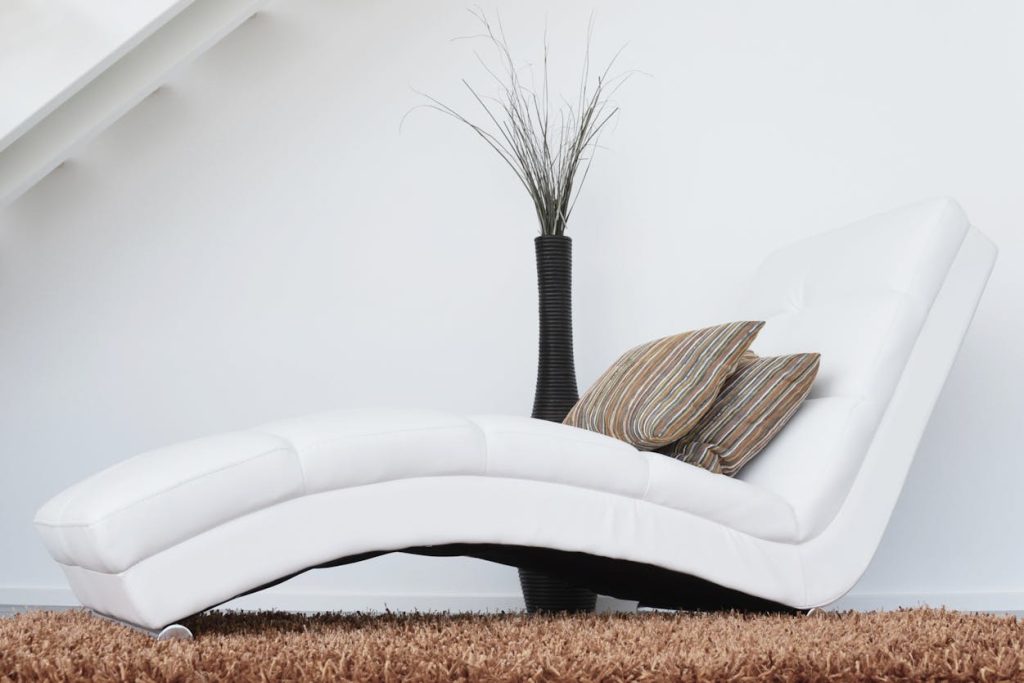The benefits of having a minimalist and decluttered home
If you have dipped your toes into interior design or furnishing, then you will probably have come across the term ‘minimalist’. In fact, this term is thrown around a lot these days, especially after it was popularised by Mari Kondo. But what exactly is a minimalist design, and what are its benefits?
In this article, we will discuss what the minimalist approach even is, especially with regard to interior design. We will also list out and explain the benefit of having a decluttered home. So, if you are interested in this topic, make sure to stick around until the very end!
What is minimalist design?
Minimalism was introduced in the early 1900s. During that era, designers no longer favoured the flashy and ornate decorations from previous periods. Instead, they adopted a ‘less is more’ kind of mentality. This was because people wanted to focus more on the essentials of design – basically its functionality. So, when it comes to minimalistic design, the function of an object is its most important aspect. As such, if an item in your home does not serve any purpose for you, you should probably get rid of it. If utilised properly, minimalism can turn a space into an elegant design.
You can achieve a minimalist design by picking furniture with a more polished and sleeker design. Most minimalist interior designs tend to favour clean, simple lines, neutral colour palettes, and materials such as wood, glass, concrete and steel. Smart storage systems are also a must in order to help avoid clutter to keep your space sleek and clean.
Less stress
Studies have already shown that outer environments such as our surroundings, workplaces and homes, can affect our inner environment (our bodies and brains). So, there’s no surprise that clutter affects our ability to focus and concentrate. Too much clutter can also increase our stress levels because it makes the home feel chaotic instead of relaxing. It also increases feelings of anxiety. However, if you practice minimalism, you can get rid of all the unnecessary items in your home. This is a fantastic way of creating more room to move about and breathe, which restores peace of mind to your outer and inner environments.
Affects our mood
There have also been several studies that have showcased how colours in our homes affect our moods. This is also known as colour psychology. In minimalist interior design, designers tend to use light, soft and neutral shades instead of bright or dark colours. This is because lighter colour schemes help to make a space larger than it actually is. These colours also help to boost your mood and decrease stress. On the other hand, darker colours may make your room feel more enclosed and give a claustrophobic feeling, which in turn can increase your stress levels.
More physical space
This is one of the most obvious and immediate benefits of decluttering – you get to have more physical space. As you are only keeping what you need, there is less random clutter taking up space in your table, drawers, cupboards and more. Without clutter, you can maximise the space you have in your home, no matter how big or small it is. You may also find that it helps to create more flow, making certain rooms easier to access. This ultimately makes it feel like you have more space to move around, so you have a more positive feeling towards living in your home.
Easier to find things
When your place is extremely clean and organised, it is less likely that you will lose something. After all, there is less clutter to go through, so even if you are not the most organised person out there, you can still find things pretty quickly!
As part of the process of decluttering involves setting up proper filing systems or storage, you will definitely find it easier to know where most, if everything is, and where to get things, instead of running around and panicking.
Increases productivity and efficiency
Research has demonstrated that cluttered spaces are linked to procrastination. After all, how can you be expected to focus on your tasks when there are a lot of scattered items right in front of you distracting you? These cluttered items become extra stimuli that can bombard your mind and inopportune times.
Another reason why cluttered spaces make us feel more unproductive is again, the stress. The more stressed we are, the more we feel distracted. This is because our ability to concentrate goes down when our cortisol levels go up. However, by freeing up more space and making your home clutter-free, you not only get to relax and recharge more, but you also get to focus on the immediate tasks you have at hand.

